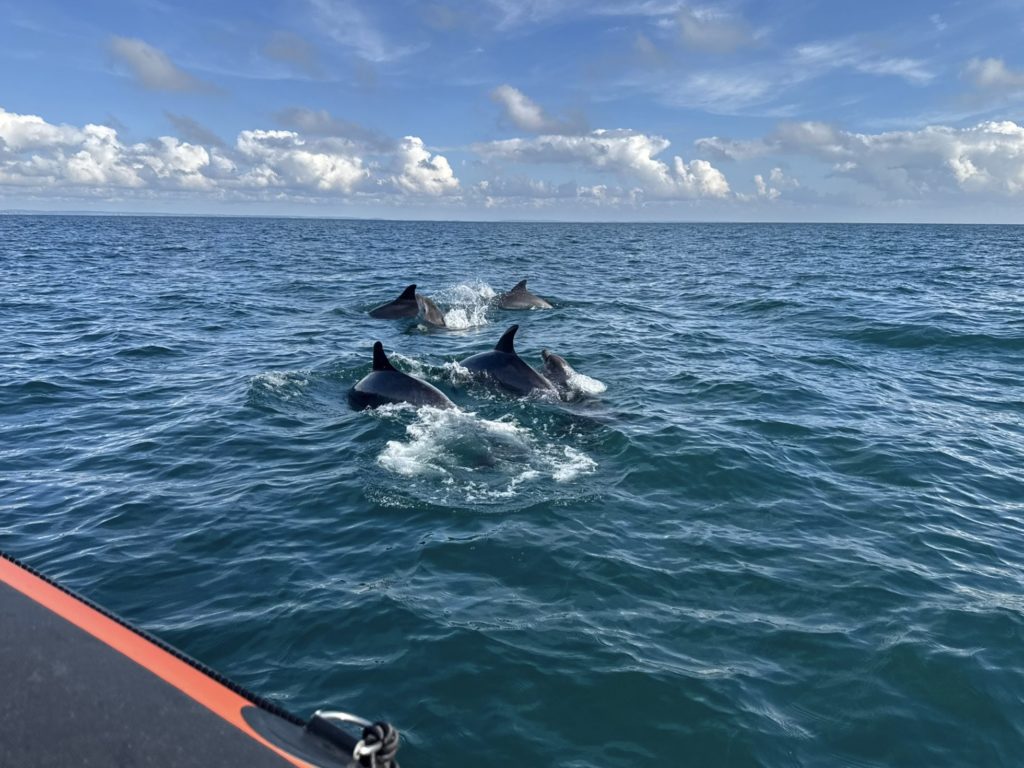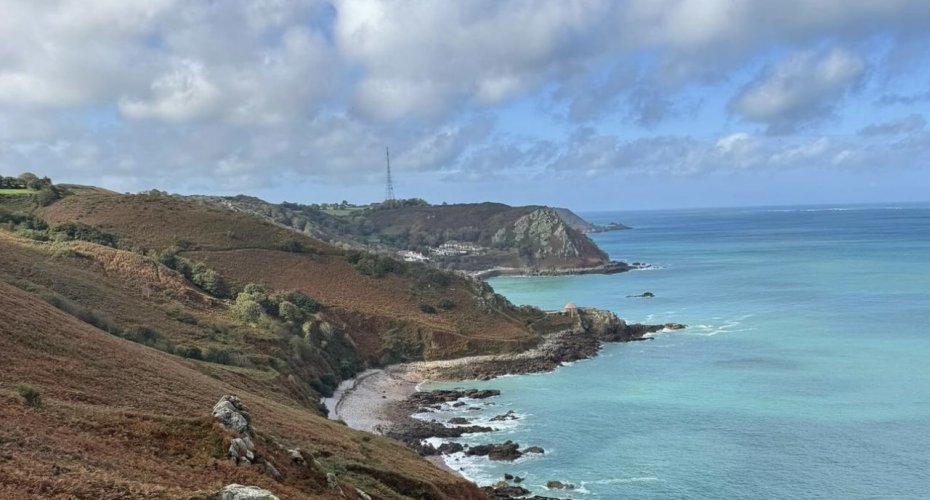Hi everyone, my name is Abi! I am currently studying towards an MSc in Island Biodiversity and Conservation with the University of Exeter and the Jersey International Centre of Advanced Studies (JICAS). In this blog I’m hoping to provide some useful advice surrounding the bursaries/scholarships available to study both my course and at the University of Exeter in general! My experience with the University is likely very different to any other student blogs you have read because rather than being based in Exeter or Penryn, I am in Jersey (the Channel Island)! However, I am confident that the advice I give you will be applicable on any University of Exeter campus or course!
Personally, finance was one of my main concerns when considering postgraduate study. Since I turned 18, I’ve gone straight from A-levels to undergraduate study, and now on to postgraduate study, so I really haven’t had a lot of time to work and save up. This is something that I am certain a large number of students can relate to (you are definitely not alone if you feel you need financial support). The numerous opportunities for support was one of the reasons that I decided on the University of Exeter, and I am very grateful to be in receipt of a £2,000 bursary to travel to the Caribbean to complete my research project next year.
As I mentioned at the start, my Masters is run in conjunction with a Jersey-based charity: the Jersey International Centre of Advanced Studies (JICAS). If you are interested in island ecosystems there are many other bursaries available for this course, including generous help with tuition fees and accommodation for international students! JICAS and the University of Exeter offer around 5 bursaries of up to £10,000 (£6,000 for fees, £4,000 towards accommodation) for international students in receipt of an offer for the MSc Island Biodiversity and Conservation. There are also many other options for financial help towards research projects including opportunities in Jersey, Despotiko (Greece), and Montserrat. More information on these is available here: https://www.jicas.ac.je/bursaries.
Although my course is slightly different, the application process was the same for my bursary because it is offered through the University of Exeter. I want to use this blog post as an opportunity to talk you through how I researched the available bursaries, and how I found the application process. (But first, here’s a picture of my first Jersey sunset!)

Researching the available options:
When I was researching the financial support available for postgraduate study, I was pleasantly surprised by the numerous schemes that UoE offers. I personally found this webpage particularly useful for a general overview: https://www.exeter.ac.uk/study/funding/postgraduatetaught/scholarships/.
The page is aimed at prospective postgraduate students, but there is a similar one available for undergraduates: https://www.exeter.ac.uk/study/funding/undergraduate/.
Alternatively, if you already have a specific subject, or a few specific courses, in mind, the UoE ‘funding database’ is a great place to narrow down your search: https://www.exeter.ac.uk/study/funding/search/. The database asks you to input your specific interests, including which campus and what level of study, and provides funding opportunities tailored to your niche. Once you have found an option you are interested in, the webpage will detail if you are eligible and what the decision is based on. Typically, a ‘bursary’ is a non-competitive financial award, and a ‘scholarship’ is competitive, based on merit in a particular area. For example, the Global Excellence Scholarship (up to £7,500) is available for international students and is awarded based on academic merit. There are even a number of scholarships available if you are particularly good at sports or singing! However, this terminology may sometimes vary, so it is always important to check the application and selection criteria!
For postgraduate study, there are a number of courses sponsored by external organisations (charities, for example). If these charities sponsor alternative bursaries/scholarships, they will be available to view in the ‘fees’ section of the course homepage. Affiliation with these charities also doubles as a great networking opportunity (if you are thinking ahead to a career)!
Additionally, UoE offers some non-competitive bursaries, aimed at students from disadvantaged backgrounds. This includes care leavers and those with household incomes of £30,000 or less. More information on these can be found here: https://www.exeter.ac.uk/study/funding/.
There are a whole host of options for financial support from UoE. I really recommend heading to the ‘funding database’ if you already know what area you would like to study in. Even if you don’t, you should explore your options!

The application process:
I’m excited to share my experience with the bursary application process, especially since I was fortunate enough to be awarded a competitive bursary. If you’re applying for a non-competitive bursary, the steps may be a little different, but I hope that my experience will still give you some useful insight. Each bursary may have its own unique requirements, but there are some common aspects that can help you better understand what to expect and how to approach it.
Make sure you take your time when deciding which bursary to apply for and make sure you check your eligibility before jumping in – it would be awful to spend ages on an application form, only to be told that you aren’t eligible!
Once I settled on the bursary I wanted to apply for, I started the formal process by filling out the application form. Now, don’t let this intimidate you! In my case, the form included a small personal statement section, but depending on the bursary, it could be more or less detailed. The questions you’re asked will often revolve around a few central themes: why you’re applying, what makes you a good candidate, and sometimes, what your long-term goals are.
My best advice for this is to really let your passion for the course (or research project) shine through! The University wants to make education accessible for people who really want to learn. You should also be specific: talk about why the course excites you, how the bursary will help you achieve your goals, and what you hope to contribute to your field. If you can clearly demonstrate your passion, drive, and commitment, you’re likely to stand out.
Now, not all bursaries require an interview, but mine did. Honestly, this was the part that made me most nervous! But don’t panic if an interview is part of your application process. In my case, the interview was much more informal than I expected. Similarly to the personal statement, show your enthusiasm and excitement if you are invited to attend an interview! It’s absolutely okay to be nervous, it shows you care about the outcome!
One of the things that made my experience so much smoother was the amazing support I received from the staff involved in the process. From the very beginning, they were incredibly patient and helpful, always available to answer any questions I had or clarify things I didn’t understand. Don’t be shy about reaching out! Whether it’s a question about eligibility, application deadlines, or how to complete a specific section of the form, the staff are there to guide you.
(Another quick diversion, I was lucky enough to see the Northern lights in my first month here!)

The impact of the bursary:
I haven’t yet fully experienced the specific impact of my bursary—my big adventure to Antigua is scheduled for May 2025! But just knowing that this extra financial support is on the way has already made a huge difference. It’s the reason I was able to start my Masters programme with peace of mind. Without it, I don’t think I would have been able to take this step.
I’ve been living in Jersey for a month now, and it has been nothing short of incredible. Even though we’re not physically based at one of the University of Exeter’s (UoE) campuses, we have full access to all of the University’s online resources. This includes the digital library, the e-learning environment, the careers service, and even pastoral support. UoE really ensures that we’re fully connected, no matter where we are. The level of access we have to these services is exceptional and has been such a great help as I settle into my studies.
One of the highlights so far has been an amazing field trip to the Écréhous, a stunning offshore reef situated between Jersey and France. The landscape was breathtaking, but what really made the trip unforgettable was being joined by a pod of dolphins on the way (see below image)! It was one of those magical moments that I’ll remember forever, and I wouldn’t have had the chance to experience it if it weren’t for the financial support from UoE.
If you’re thinking about university but feeling hesitant because of financial concerns, I can’t recommend exploring scholarships and bursaries enough. It might seem daunting at first, but I promise you, the application process was so simple, and the opportunities it has opened up for me are truly off the charts. Whether it’s a chance to study in an incredible place, go on once-in-a-lifetime field trips, or just have the peace of mind to focus on your studies, financial support can really transform your experience. So, if you’re on the fence, go for it! It’s absolutely worth it. Even if you don’t succeed on your first attempt, the process itself is a great learning experience.


